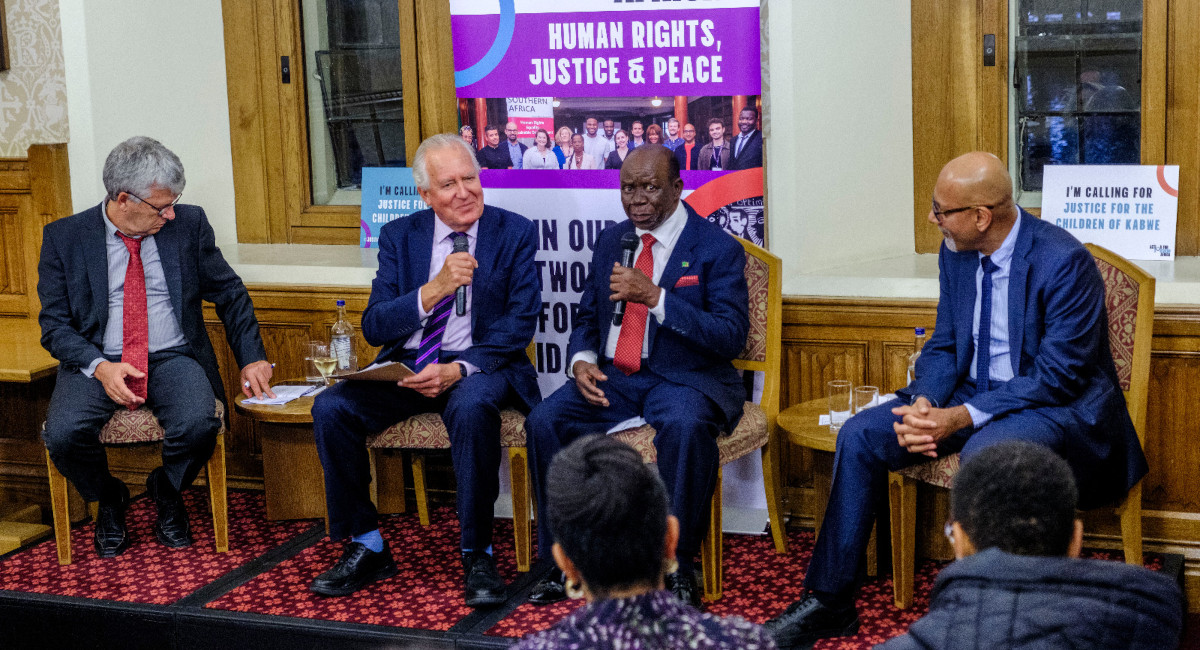Other

Event hosted in UK calls Anglo American to Answer for its toxic legacy in Kabwe

The event was attended by civil society organisations, Peers, members of the media, and a representative from Anglo American. Attendees were given the opportunity to sign an open letter addressed to Anglo American CEO, Duncan Wanblad, calling for immediate action by the company to address its historic legacy of mass lead poisoning and pollution.
The open letter has already been signed by civil society organisations across the world and across environmental, human rights, children’s rights, and corporate accountability bodies. The letter urges Anglo American to remediate the situation that the company’s historic actions have caused to the communities and environment of Kabwe by:
The Kabwe Mine, located in Kabwe, Zambia was an Anglo American mine from 1925 to 1974. From the early 1970s, reports by the Mine doctors showed that several children had died of lead poisoning from the mine, and that a high proportion of children in the local communities were suffering from very high levels of lead in their blood. Today, people in Kabwe live in one of the most polluted places in the world because of Anglo American’s historic mismanagement and blatant disregard for the health and safety of Kabwe’s residents.
The event featured an in-depth discussion between Lord Hain and Barry Mulimba, a community leader from Kabwe. There were also remarks from Richard Meeran, Partner at UK law firm Leigh Day, who are working with Mbuyisa Moleele Attorneys in bringing a class action against Anglo American South Africa on behalf of around 140,000 women and children in Kabwe who are alleging harm from lead poisoning caused by Anglo American’s historic mining operations. Remarks were also heard from Prof Dr. med. Stephan Böse-O’Reilly, an environmental health expert from the University Hospital Munich who has studied the health impacts of lead poisoning on children in Kabwe for almost a decade.
At the event Barry Mulimba, Kabwe resident and community leader, said
“As the community of Kabwe, we hold Anglo American directly responsible for this dire situation. We feel our human rights have been abused and violated. We demand justice from Anglo American. We demand that Anglo American properly address the environmental devastation they’ve left behind. If this is not done, future generations will be condemned to live with the ongoing crisis of lead poisoning in Kabwe.”
Prof. Dr Stephan Bose-O’Reilly, a Paediatrician and Professor for Public Health and Environmental Medicine at University Hospital Munich, said:
“It is clear that a significant number of children in Kabwe are seriously exposed to dangerous levels of lead in their environment. There is scientific evidence that children have alarmingly high blood lead levels. The exposure is directly related to the environmental contamination of the area forced by the former lead and zinc mining.”
“Anglo American as a group has a human rights policy stating that when they have caused or contributed to adverse human rights impacts, they will support appropriate remediation. So, one might reasonably ask: why, over the past 50 years, has Anglo failed to address the lead poisoning and pollution in Kabwe? Would a mining company be allowed to act this way and evade responsibility here in the UK? It’s inconceivable, and yet, this has been the reality in Zambia—where the wrongdoers have, so far, escaped accountability.”
“I am grateful that so many of my colleagues from the House of Lords are here to support such an important cause. Anglo American’s legacy in Kabwe has inflicted devastating harm on generations of people, most especially children. Addressing this issue isn’t just a moral obligation but a responsibility to humanity. We are here today to insist that corporations cannot profit from destruction while evading accountability. Anglo American must confront the lasting damage of its actions – the people of Kabwe deserve nothing less.”












